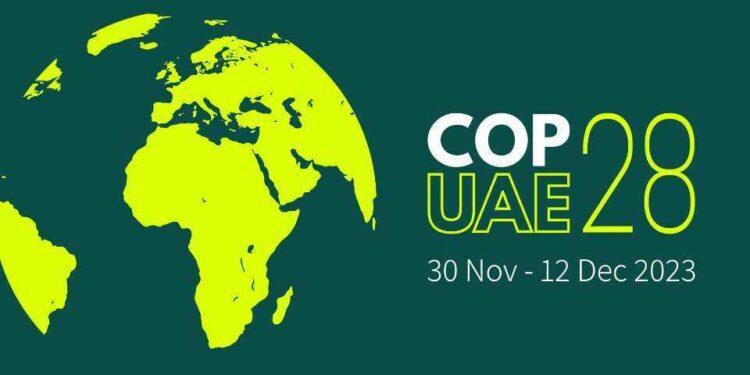The United Nations Framework Convention on Climate Change held its 28th Conference of Parties, better known as COP28, in Dubai, United Arab Emirates (UAE), from November 30 to December 13, 2023.
In his closing remarks, Simon Stiell, Executive Secretary of the Framework Convention on Climate Change, said that although the fossil fuel era did not end in Dubai, the agreement reached there represents the beginning of its end, and it is now up to national governments and companies to make it an urgent mission to turn these commitments into real economic results.
The official closing statement affirms that things are looking up: the days are numbered for the cause of our environmental ills.

In this article we reflect on the climate situation before the summit and the political expectations it raised. Then we will review the COP28 agenda and the agreements reached.
In conclusion, we ask whether there are sufficient reasons to be optimistic and believe that the announced “beginning of the end” of the fossil fuel era means we can draw our breath, despite the fact that last summer’s near-apocalyptic heat is still vivid in our minds.
Are we already in the era of climate disaster?
In the middle of last summer, when July was on track to become the hottest month ever recorded, UN Secretary-General António Guterres said that the era of global warming was over and had given way to the era of global boiling: an unprecedented stage in climate change and a terrifying fact.
Climate scientists explained that last July was probably the hottest month in 120,000 years based on records. Summer on our planet has been blazing hot. The scorching heat waves have lingered, causing destructive wildfires, endless droughts and devastating storms.
Rising temperatures were not just a summer phenomenon: 2023 broke all records and should be recorded as the hottest year ever, according to the EU agency Copernicus.
NASA has provided data on fires in Canada that burned about 18.4 million hectares of land last summer, an area roughly the size of North Dakota (183,125 sq. km.) and bigger than Greece (131,957 sq. km.).
Until then, the annual Canadian average was 2.5 million hectares affected by fire. The smoke forced millions of Canadians and Americans to stay indoors to avoid respiratory damage. They may have used the occasion to listen to and meditate on Cat Stevens’ song, O Caritas, with its powerful opening lines in Latin: “Hunc ornatum mundi / Nolo perdere / Video flagrare / Omnia res.”
Tourists fled the Greek islands; workers in India suffered sunstroke; Hawaii burned.
Reasons for cautious optimism
On July 26 in Nairobi, Kenya, at the 59th session of the United Nations Intergovernmental Panel on Climate Change (IPCC), a new chair of this institution was elected for the next five to seven years. He is James Ferguson Skea, professor of sustainable energy at Imperial College, London.
Read the complete article here.
This article is brought to you by UCA News in association with “La Civiltà Cattolica.”
Credit: Source link




